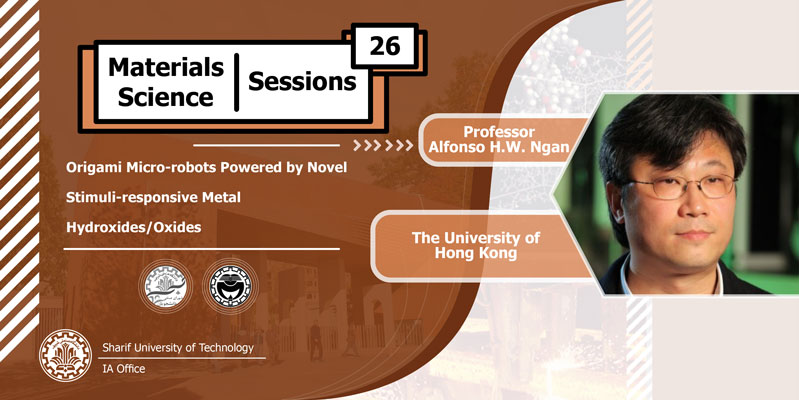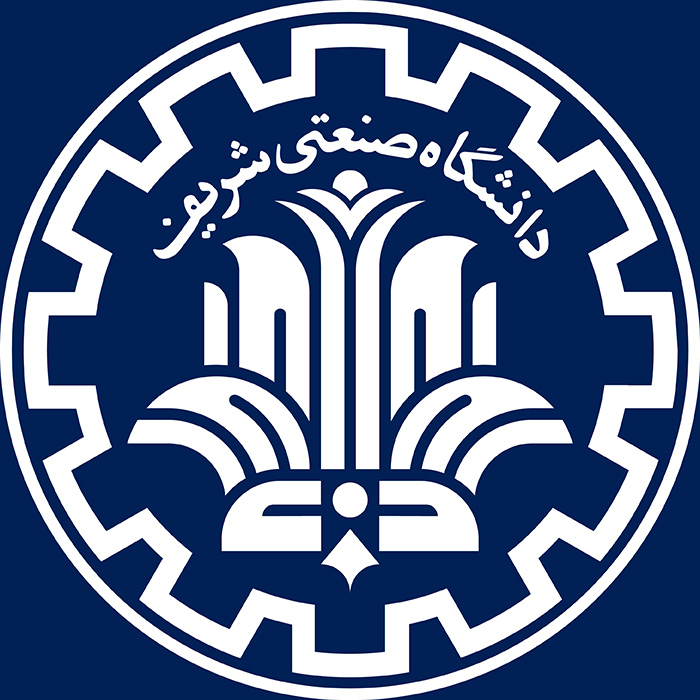Materials Science Sessions / 26 Speaker : Professor Alfonso H.W. Ngan , The University of Hong Kong Language : English Organizer : Department of Materials Science and Engineering, SUT Date : May 18th, 2020, 16:00 IRST Link : https://vclass.ecourse.sharif.edu/ch/mse-stu Google Scholar: https://scholar.google.com/citations?user=SYh3wNQAAAAJ&hl=en Abstract: Flexible origami structures can mimic the complicated motions of small creatures that are otherwise difficult to be achieved by rigid robots with limited degree of motion freedom. However, actuating origami structures in a compact and self-contained way has been a critical challenge. Here, we demonstrate a versatile approach of actuating origami micro-robots, by printing self-folding creases on compliant polymer membrane substrates. The self-folding creases are made of a type of stimuli-responsive transition metal hydroxides/oxides that can undergo large actuation under electrochemical or light stimulations. Direct printing of the stimuli-responsive material via a microfluidic electrochemical writing method at the locations of the creases enables the creases to self-fold independently “on demand”, with folding curvatures exceeding 1 mm-1 under low-intensity visible-light stimulation in ambient conditions, or low-potential electrochemical stimulation in electrolytic environments, with response time as fast as in seconds. Based on the high performance of such active creases, complex miniaturized origami designs powered by hinges activated in an independently controllable way are demonstrated, including self-folding Miura and a full micro-robotic hand with independently programmable finger joints. These results prove a new, versatile paradigm for micro-robotics, where a transferrable approach is applicable to design and fabricate a wide variety of customizable micro-robots with compact construction and complex motions using different stimuli-responsive ceramic-based materials. Biography: Professor Alfonso H.W. Ngan is currently Kingboard Professor in Materials Engineering, Chair Professor of Materials Science and Engineering, as well as Acting Vice-President (Research), at the University of Hong Kong. He obtained his BSc(Eng) degree from the University of Hong Kong in 1989, and PhD from the University of Birmingham in the U.K. in 1992. After a year of postdoctoral training at Oxford University, he joined HKU in 1993, and was promoted through the ranks to Chair Professorship in 2011. Professor Ngan’s interest includes the microstructural basis of properties of engineering materials, in particular, crystalline defects and their modeling, and nanomechanics including applications to biological systems. He has published over 220 ISI papers, co-authored two books, and filed two US patents. His main contributions include a method for correcting viscoelastic effects in nanoindentation measurements of soft materials, understanding of stochastic deformation behaviour in small crystals, an exact formalism of continuous dislocation kinematics, and, more recently, the discovery of a novel class of metal hydroxides/oxides as stimuli-responsive actuating materials. His research-related honours include the Rosenhain Medal from the Institute of Materials, Minerals and Mining, U.K., a higher doctorate (DSc) from the University of Birmingham, the Croucher Senior Research Fellowship, and election to the Hong Kong Academy of Engineering Sciences. He has organized a number of key conferences, including Dislocations 2008 and Gordon Research Conference on Nanomechanical Interfaces in 2013, both held in Hong Kong. He is serving on the Gordon Research Conference Board for Hong Kong Conferences, and has served as a Meeting Chair in the Materials Research Society 2017 Spring Meeting held in Phoenix, USA.

